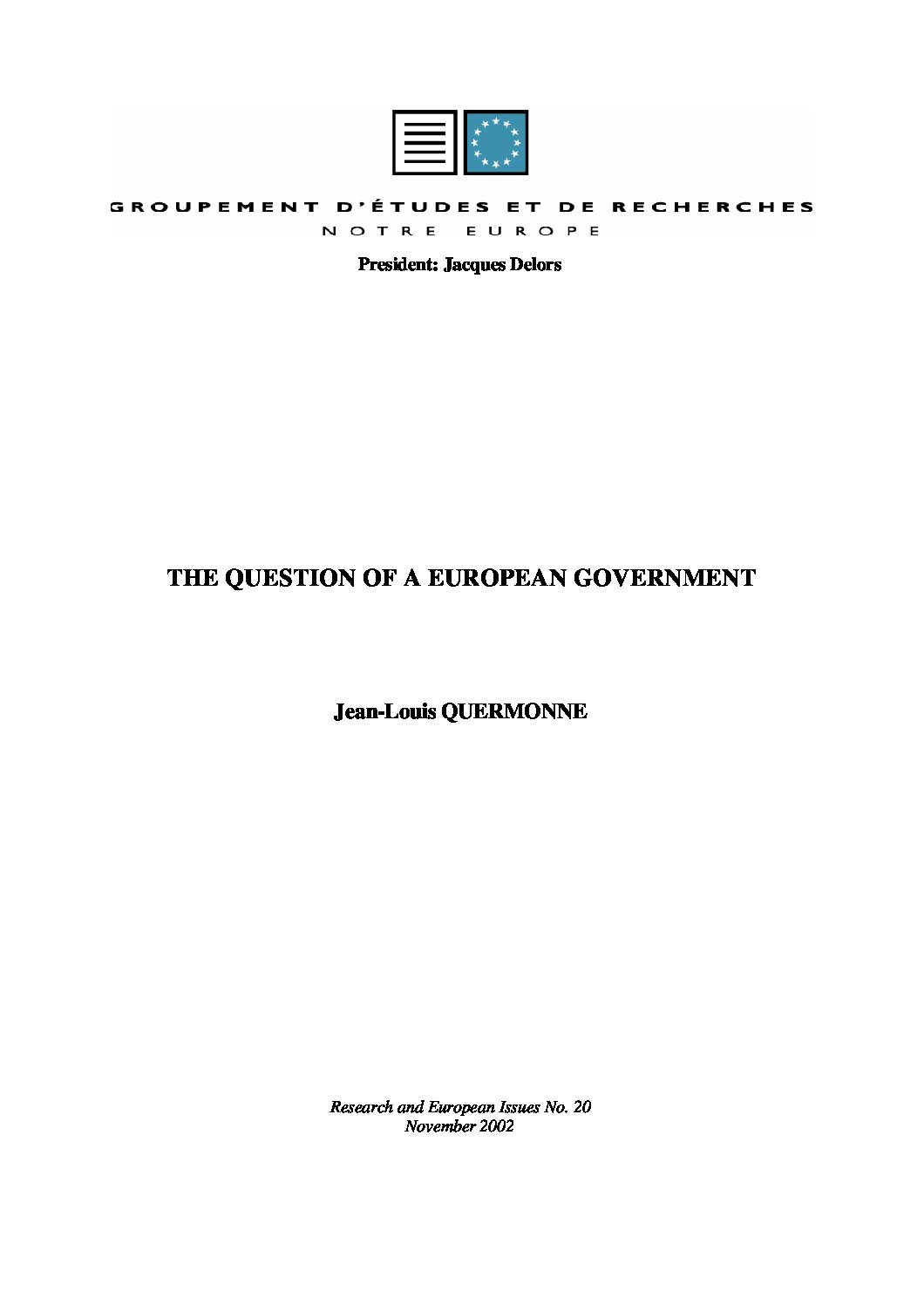Report
The Question of European Governement
Following on from the study on the European Council by Philippe de Schoutheete and Helen Wallace1, Jean-Louis Quermonne now turns to “the question of a European government”. As the framework of the future constitutional treaty has just been made public by the Presidium of the European Convention, the issue could not be more topical. It will require the members of the Convention to become “inventors of simplicity”, to use an expression I am fond of.
Following on from the study on the European Council by Philippe de Schoutheete and Helen Wallace, Jean-Louis Quermonne now turns to “the question of a European government”. As the framework of the future constitutional treaty has just been made public by the Presidium of the European Convention, the issue could not be more topical. While the problem of European executive power has already given rise to much debate and inspired many vocations, there is more to it than just appointing a symbolic personality – be it a president, a prime minister or a European secretary. Jean-Louis Quermonne accordingly begins by reminding us that broadening the scope of the European Union’s tasks takes us beyond a simple debate on governance and brings out the need for something that is more akin to government. That is to say the need for a body which, in a framework of clear relations with the other Union institutions, is capable of taking and implementing decisions. I have noted a number of fundamental points in this well-reasoned study. First of all, simple does not mean simplistic. The na ture of the European integration process, since it began, has been to reconcile two sources of legitimacy: that of the Member States, reflected in intergovernmental procedures, and that of common institutions based on a direct relationship with European citizens. The question is not, therefore, a choice between the intergovernmental and the supranational approaches but rather, as Convention president Valéry Giscard d’Estaing brilliantly pointed out, how we can draw the best from each practice. Jean-Louis Quermonne also warns us against the misconception that the Community method amounts to a supranational approach, when in fact it derives from a first synthesis between the supranational and intergovernmental approaches. Likewise, the Commission is all too often perceived as being apolitical – and even technocratic – when in fact both its composition and role make it a political institution whose democratic legitimacy must now be strengthened. Building on the principle of dual legitimacy underpinning the Union, the author has developed an institutional blueprint based on the concept of “mixed government” – a concept already presented in a publication of the Board of Directors of Notre Europe, albeit in the form of an approach rather than a definitive proposal. This “mixed government” would draw on the synergy between the Council of the European Union and the European Commission within the framework of a single presidency. Together, the two institutions would manage the “single institutional framework” so adversely affected by the compartmentalised “pillar” structure. At a time when many of the suggestions put forward aim, explicitly or covertly, to sideline or even undermine the European Commission, I would like to underline the findings of Jean- Louis Quermonne’s analysis. While the Commission is not an all-powerful institution and cannot expect to govern the Union on its own, it must remain at the heart of this government in a Union of 25 or 30 States. For it is part and parcel of the initial inspiration that has allowed Europe to deliver the irreplaceable added value its States and citizens are enjoying today. Every effective step forward in the European integration process is, to a large extent, attributable to the fact that the Community method played a central role. We are now on the eve of an unprecedented enlargement which will confront the European Union with the challenge of numbers and put considerable pressure on its cohesion and capacity to act. This makes it more than ever necessary to have a body responsible for ensuring the consistency of its action unless – whether knowingly or, worse still, unknowingly – we wish to run the risk of it becoming ineffective.









